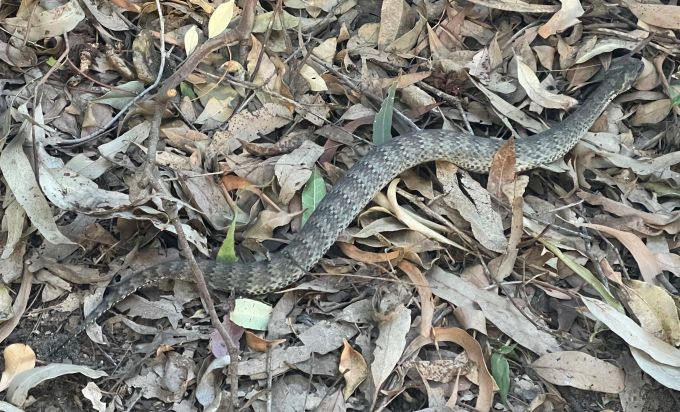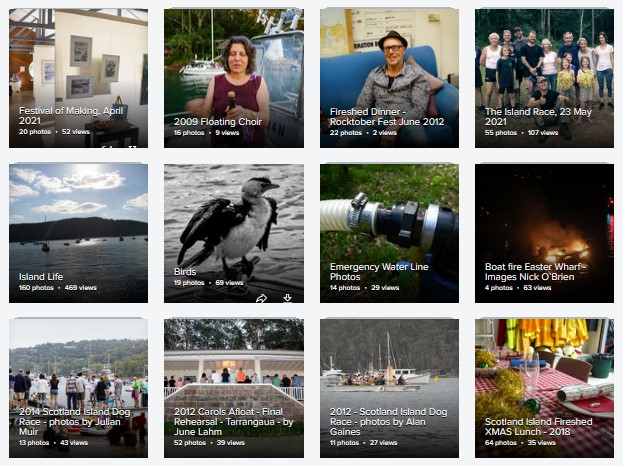| Having trouble reading this newsletter? Visit https://ymlp.com/archive_gesgjgm.php | ||||||||||||||||||||
 |
||||||||||||||||||||
October 13, 2021 |
||||||||||||||||||||
|
Newsletter for the
Offshore Residents of Pittwater, Australia - Volume 22,
Issue 1162
We acknowledge and pay our
respects to the Traditional Custodians of
Pittwater, as well as our indigenous readers
|
||||||||||||||||||||
Contents
A Brief History of Scotland Island Fire BrigadePart III: the 1970sRoy BakerDrawing principally on Scotland Island News (SI News) archives, Part III looks at fire boats and fundraising.
Founded in 1955, the Scotland Island Volunteer Bushfire Brigade was, in its early years, largely dependent on Warringah Council for provisions. By all accounts the fledgling brigade wasn't too impressed with the level of support it was getting from official quarters. But it's worth acknowledging the generosity of many offshore residents to the brigade, both past and present. For instance, the island received its first truck from a resident, and it wasn't until the late 1960s that Warringah finally produced a vehicle: a wartime Blitz wagon which islanders nicknamed Bertha.
Other brigades were more lucky. For instance, Berowra Waters’ brigade, which fell under Hornsby Shire, had by 1964 acquired an 18-foot twin-hulled unit. Allegedly unsinkable, the vessel's pumps were capable of lifting water 150 metres up a hillside. No such vessel was forthcoming from Warringah Shire. Indeed relations between the authority and Scotland Island brigade appear at times to have been distinctly rocky. For instance, in the early 1970s there was a threat by Warringah to disband the brigade. The main point of contention was the use of the fire shed, then located on the waterfront near Tennis Court wharf. Islanders were using it as a playschool and general community centre. When the fire authority objected, residents were appalled: they had built the shed and felt entitled to use it as they pleased. It seems that the row quickly dissipated. But even in the 1970s the island’s brigade continued to look to residents for the funding of basic firefighting equipment. In fact, as late as 1980 members were expected to pay for their own protective boots and overalls, albeit at cost price.
By 1973 Western Shores Fire Brigade had acquired a fire boat. Costing $2,500 ($24,000 in today’s money), the boat was bought by public subscription. This prompted the island to launch its own fire boat appeal, canvassing donations from residents. Within a few years it had raised over $2,000 (around $13,000 today), and by 1976 a vessel had been acquired, named the Bill Nunns, after the brigade secretary who was instrumental in raising the funds. Fundraising continues to be a brigade necessity, although today essential firefighting equipment is provided by NSW Rural Fire Service. Anyone who has lived on Scotland Island longer than a few months should be aware of our beloved fire shed dinners. Prior to the COVID hiatus these happy events were held several times a year and involved a team of islanders preparing and serving three-course meals of invariably high quality. The proceeds are used for such things as maintaining the fire station and purchasing additional equipment to enhance brigade operational efficiency.
What precisely triggered the event isn't known. But attendance exceeded 100: pretty impressive given that at the time the island’s permanent adult population barely exceeded 200. Today it’s rare to attract more than a quarter of island adults to any island function, save for the larger festivals. Early brigade socials generally included a request that ‘ladies bring a plate’. This 1977 extravaganza was professionally catered. Even so, the SI News write-up refers to ‘white-clad Bob Blackwood’ passing out steaks ‘with all the dignity of a Hilton chef’. Apparently the old white uniform was something of a status symbol among some firies, indicating longevity of service. Bob, a long-term brigade stalwart, still lives on the island, as does June Lahm, who also helped raise the staggering $700 profit ($4,000 in today's money) generated by the night. That's an impressive result, one the brigade would be proud to achieve today, despite having more than double the population to draw on. One doesn’t like to give today’s brigade ideas, but it looks as though much of the success of the 1977 fundraiser came from gambling. Gaming tables were set up in the fire shed, with games including Crown and Anchor, Overs and Unders and Swy (Two-Up), all terms that mean nothing to a gambling innocent like me. Apparently the fire shed resembled a veritable casino for the night, and gaming remained a source of brigade funds well into the 1980s. Who knows what RFS headquarters would make of similar activities today. This periodic history of the brigade will be continued in future editions of the PON.  SIRFB: Election of Additional OfficersAt a general meeting on 11 October Scotland Island fire brigade filled two vacancies left over from its AGM. Steve Yorke was unanimously elected as station officer and Tim Ives was similarly appointed training officer. Congratulations go to both.
Steve first joined the NSW Bush Fire Service in 1972 and was a founding member of the Evans Shire Headquarters Brigade in Bathurst, where he rose to the rank of captain. In 1991 Steve and family moved to Scotland Island and he joined the SIRFB, where he was appointed Deputy Captain and Senior Deputy Captain.Steve joined the NSW RFS as a salaried officer in 1999 and has served as Fire Control Officer, Region East Manager. He has also held numerous director’s roles as an Assistant Commissioner. In 2007 Steve was awarded life membership of the Rural Fire Service Association in acknowledgement of his significant contribution. Steve was also awarded the NSW RFS Commissioner’s Commendation for Service in 2001 and was honoured with the Australian Fire Services Medal in 2008.
At 18, Tim is probably the youngest person to have been appointed training officer for the brigade. Despite his age, Tim has qualified as a bush and a village firefighter, meaning that he has the skills necessary to tackle structural fires, as well as those involving vehicles and flammable gas. Tim regularly attends incidents around the island and aspires to a career in the emergency services. Tim lives on the south side of the island with his family. 'After 18 years on the island I’ve certainly seen its worst and best sides', he says. 'Its worst side may be turning up to school soaked for the day, but for me its best is the unique community and the "islander spirit" within.'Tim describes the brigade as 'a central element of the community and a gratifying team to be part of.'  Snake Alert: Southern Death Adder
Never try to catch or touch a snake! Snakes are more active in warmer months and are commonly seen around houses offshore. A southern death adder was recently observed on Scotland Island and positively identified by a reptile expert for the NSW Wildlife Information, Rescue and Education Service (WIRES). WIRES advises:
Melinda Ham WIRES Scotland Island CaféSunday 24 October, 10 - 12 noon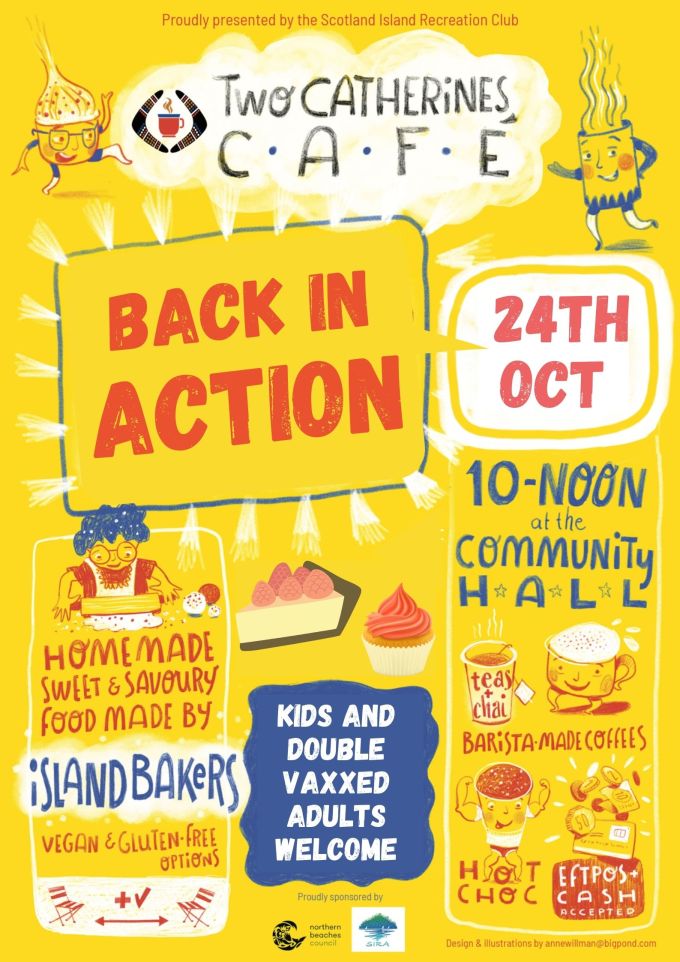  Scotland
Island Newcomers' Welcome
|
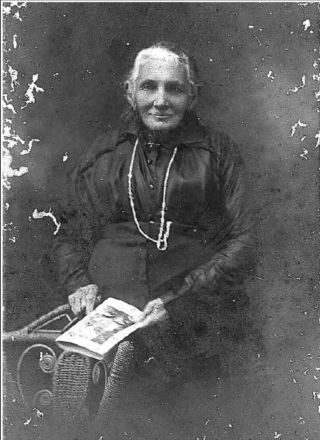
|
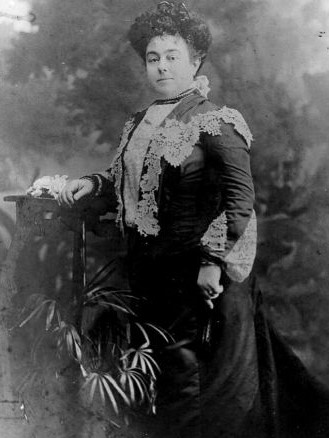 |
| Catherine
Benns (1838 - 1920): an indigenous midwife and 'Queen of Scotland Island' |
Catherine
Bouffier (1857 - 1940),
after
whom Scotland Island's Catherine Park is
named
|
Scotland Island Recreation Club, under the stewardship of Robyn Iredale, is working towards creating a performance, due to be staged on the island late next year, focusing on the lives of Catherine Benns and Catherine Bouffier. Both women's lives helped create the Scotland Island we know today, and are remembered in the name of the café held regularly in Catherine Park.
To kick-start the process, SIRA is presenting two talks on island and Pittwater history. Besides teaching offshore residents about local history, these will generate ideas that will help the playwright accurately reflect the past and character of Scotland Island. These events will include plenty of time for discussion, and will be offshore residents' first opportunity to shape and participate in this exciting exercise in community co-creativity.
The first talk will focus on the area's Indigenous history. Guests will include: Neil Evers, Chair of the Aboriginal Support Group - Manly Warringah Pittwater, and local historians Paul Griffiths and Craig Burton. Neil is the grandson of Catherine Benns' nephew.
The second talk will examine the island's European history, including how it came to be settled and subdivided. It will include contributions from islander and historian Craig Burton, plus Vivianne Byrnes, great-granddaughter of Catherine Bouffier.
Afternoon tea will be served at both events.
In order to be COVID-compliant, registration for these events will be essential. Further information about the talks, as well as details on how to register, will be provided in the 1 November edition of the PON.
SIRA
AGM and Barbecue
Sunday, 14 November
AGM: Scotland Island Fire Station, 10 - 12 noon
Barbecue: Catherine Park, 12 - 2 pm
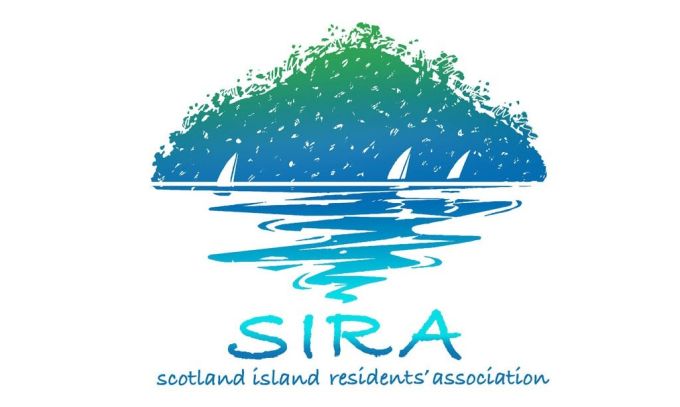
After the AGM, you are invited to attend a gathering in the park (with appropriate social distancing) from 12 noon to 2 pm. Sausages (including vegetarian options), salads and rolls will be provided. BYO drinks, but the Two Catherines Café is also open that day, and will stay open until 1 pm.
Information about nominations for the 2022 committee will be sent out shortly via SIRA News and on social media. Start thinking about who you’d like to nominate! SIRA encourages all islanders – including newcomers – to become involved.

Book
Launch: 'Water Access Only'
Scotland Island Recreation Centre, Sunday 5 December
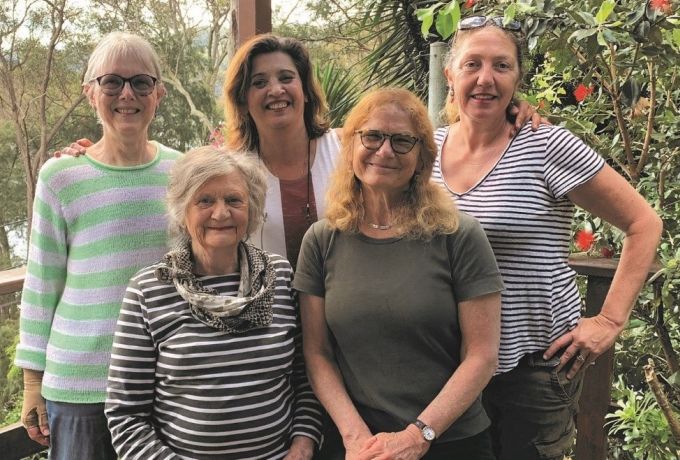 |
| The
production team, left to right : Jane Morgan
and Jane Rich (assistant editors); Juliette Robertson and CB Floyd (editors) and Jane Matthews, designer |
Featuring over 55 offshore contributors, over 115 full colour photographs and 160 pages, this unique community anthology of stories, poems, artwork and photographs about offshore life is arriving soon. In it, offshore writers, artists and photographers share their perceptions, thoughts, and feelings about what it’s like to live on the shores of Pittwater and in the forests of the island and Ku-ring-gai Chase.
Offshore musicians are also proudly featured in a linked Spotify playlist featuring some fabulous offshore virtuosos.
Our new anthology will be formally launched on December 5 in the Recreation Centre on Scotland Island. Further details will be announced in subsequent editions of the PON.
You’ll be able to order your copies during November and pick them up at the launch.
For
Sale: Framing gun
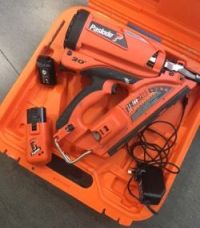 Paslode framing gun model CF325XP
Paslode framing gun model CF325XPThe gun was only used for a small home renovation which I did myself.
(Only two gas cylinders were used).
2 x batteries included.
In absolutely mint condition. Nothing bent, not even a scratch.
Purchased July 2020.
For sale: $650.

For Sale: Water tank
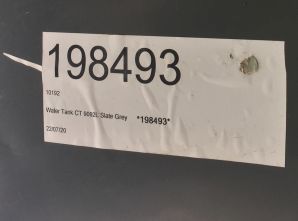
Already on the island: one brand new 9,092-litre woodland grey poly tank, complete with inlet strainer and outlet fitting.
All offers considered.
Phone 0417 524774 for inspection.

Missed out on a previous newsletter?
To Contribute
If you would like to contribute to this newsletter, please send an e-mail to the editor (editor@scotlandisland.org.au).Subscription Information
To subscribe or unsubscribe, go to: http://www.scotlandisland.org.au/signup.Follow the PON
 |
 |
 |
The Online Local Contacts Guide
Click HERE to load
Pittwater Offshore Photo Gallery

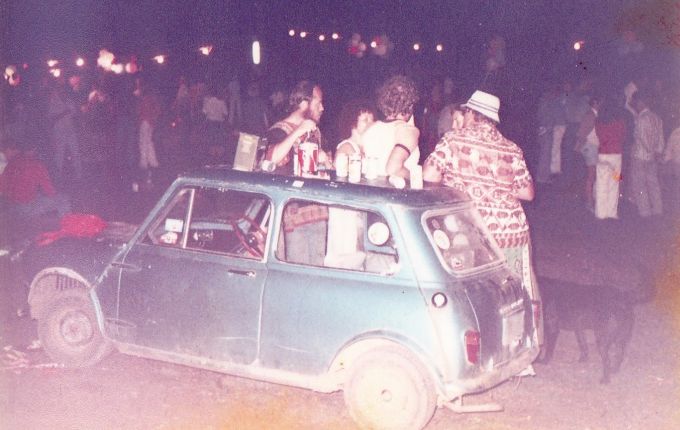
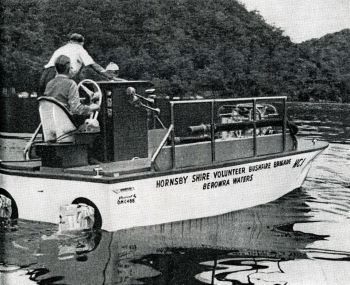
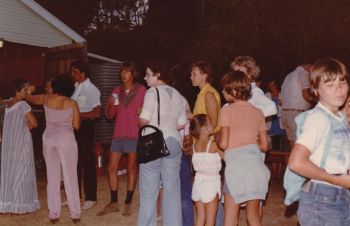
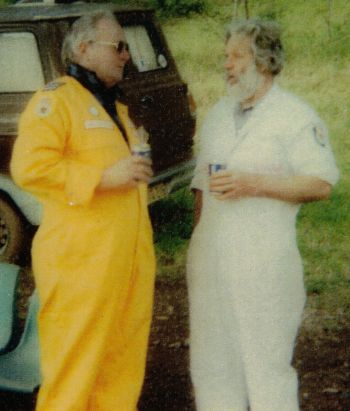
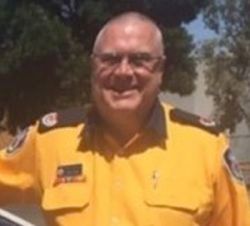 Steve
Yorke AFSM
Steve
Yorke AFSM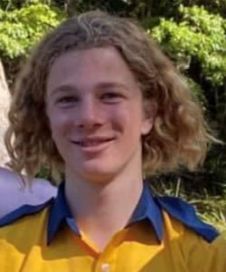 Tim Ives
Tim Ives